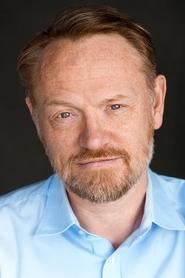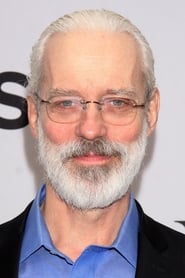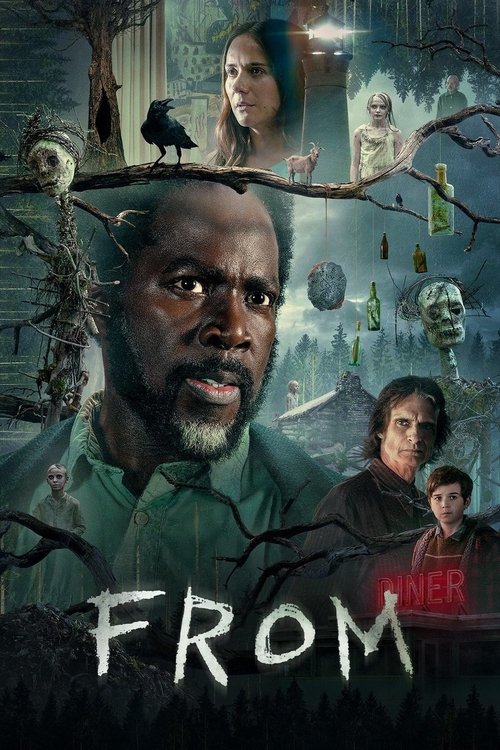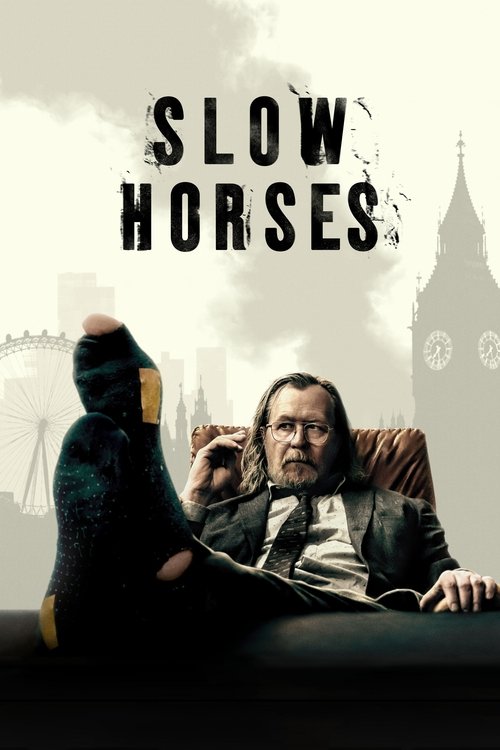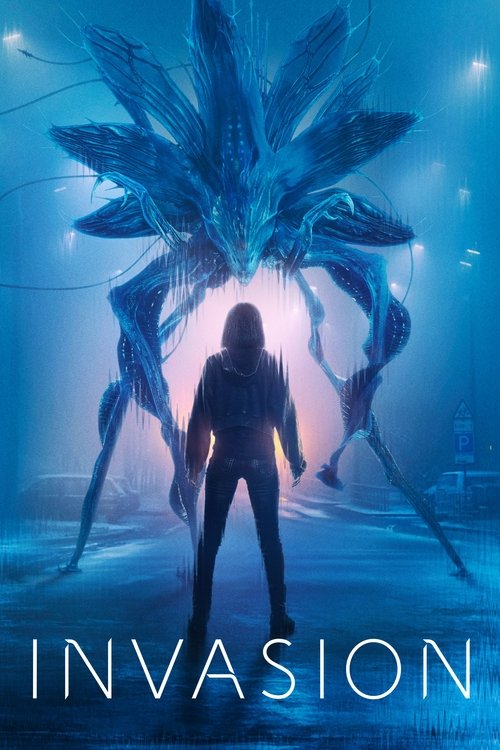
Ask Your Own Question
What is the plot?
The episode opens on the planet Terminus, where we see a young Gaal Dornick arriving on a spaceship. Gaal is nervous and excited, having just been summoned to the Galactic Empire's capital, Trantor, to meet the renowned mathematician Hari Seldon. As Gaal disembarks, the grandeur of Trantor is revealed, showcasing its towering structures and advanced technology. Gaal is awed by the scale of the city and the bustling activity around.
Gaal is escorted to a meeting with Hari Seldon, who is in the midst of a trial for treason. Seldon, a brilliant psychohistorian, has predicted the fall of the Galactic Empire and proposes a plan to mitigate the ensuing chaos. During the trial, Seldon argues that his predictions are based on mathematical principles and that he can help save humanity from a dark age. The Emperor, represented by Brother Day, is skeptical and dismissive of Seldon's theories, viewing them as a threat to his power.
As the trial progresses, Seldon reveals his vision of a Foundation, a group of scholars who will preserve knowledge and culture to shorten the impending dark age. Gaal, who has been listening intently, is drawn to Seldon's ideas and becomes emotionally invested in the outcome of the trial. The tension escalates when Brother Day orders Seldon to be executed, but Seldon cleverly argues that killing him would only prove his predictions correct.
In a surprising turn, Seldon is spared, but he and Gaal are exiled to Terminus, where they will establish the Foundation. Gaal feels a mix of fear and excitement about this new life, realizing the weight of the responsibility they are taking on. As they prepare to leave Trantor, Gaal has a moment of doubt but is reassured by Seldon's confidence in their mission.
Meanwhile, on Trantor, Brother Day is shown to be ruthless and calculating. He discusses the implications of Seldon's predictions with his fellow rulers, Brother Dawn and Brother Dusk. They express concern over the potential instability Seldon's ideas could cause within the Empire. Brother Day decides to take a more aggressive approach to maintain control, indicating that he will not let Seldon's ideas threaten his reign.
Back on Terminus, Gaal and Seldon begin to gather a group of like-minded individuals to form the Foundation. They face challenges in convincing others of the importance of their mission, but Gaal's passion and Seldon's intellect begin to attract followers. The emotional stakes rise as Gaal grapples with the enormity of their task and the fear of failure.
The episode culminates in a dramatic confrontation when Brother Day sends a fleet to destroy the Foundation before it can take root. Gaal and Seldon, now aware of the imminent threat, must rally their supporters and devise a plan to protect their fledgling community. The tension is palpable as they prepare for a potential battle, underscoring the high stakes of their endeavor.
In the final moments, the fleet arrives at Terminus, and the screen fades to black, leaving the fate of the Foundation and its members uncertain. The episode ends on a cliffhanger, setting the stage for the challenges that lie ahead as Gaal and Seldon strive to fulfill their vision against overwhelming odds.
What is the ending?
At the end of "The Emperor's Peace," the first episode of Foundation, Hari Seldon is arrested for treason against the Galactic Empire after presenting his theory of psychohistory. Gaal Dornick, a young mathematician, is also taken into custody but is intrigued by Seldon's ideas. The episode concludes with the Emperor, Brother Day, contemplating the implications of Seldon's predictions and the potential threat he poses to the Empire.
In a more detailed narrative:
As the episode nears its conclusion, the tension escalates in the grand halls of the Imperial Palace on Trantor. Hari Seldon stands before the Emperor, Brother Day, and the court, having been summoned to explain his controversial theory of psychohistory. The atmosphere is thick with anticipation and unease, as Seldon articulates his belief that the Galactic Empire is on the brink of collapse. His words resonate with a mix of fear and fascination among the gathered nobles and officials.
Seldon's demeanor is calm yet resolute, embodying the weight of his convictions. He passionately argues that while the Empire may seem stable, the underlying currents of societal decay are undeniable. His mathematical predictions suggest a dark future, one that could lead to centuries of chaos. The Emperor, however, is not receptive to this dire forecast. Brother Day's expression shifts from curiosity to indignation as he perceives Seldon's insights as a direct challenge to his authority.
In a dramatic turn, Brother Day declares Seldon's theories as treasonous, viewing them as a threat to the Empire's stability. The court erupts in murmurs of shock and disbelief. Gaal Dornick, who has been observing the proceedings with a mix of admiration and fear, feels a surge of loyalty towards Seldon. He is captivated by the older man's vision but is also acutely aware of the peril they both face.
As the guards move to arrest Seldon, Gaal steps forward, his heart racing. He is taken into custody alongside Seldon, feeling a profound sense of uncertainty about what lies ahead. The two men share a brief, meaningful glance, a silent acknowledgment of their shared fate and the bond that has formed through their intellectual connection.
The scene shifts to the Emperor's private chambers, where Brother Day contemplates the implications of Seldon's predictions. He is visibly troubled, grappling with the idea that the very foundation of his rule may be threatened by a mathematical theory. The Emperor's internal conflict is palpable; he is a ruler who has maintained power for centuries, yet now faces the unsettling possibility of decline.
The episode concludes with a sense of foreboding. Seldon and Gaal are led away, their futures uncertain, while Brother Day stands alone, burdened by the weight of his empire and the knowledge that the seeds of rebellion and change have been sown. The final shot lingers on the Emperor's face, a mixture of anger and fear, as he contemplates the potential unraveling of the Galactic Empire, setting the stage for the conflicts and challenges that will unfold in the episodes to come.
Is there a post-credit scene?
In the first episode of Foundation, titled "The Emperor's Peace," there is no post-credit scene. The episode concludes without any additional scenes or content after the credits roll. The focus remains on the main narrative and character developments throughout the episode, setting the stage for the unfolding story without any extra material following the main storyline.
Who is Hari Seldon and what is his significance in the episode?
Hari Seldon is a mathematician and the creator of psychohistory, a scientific discipline that uses mathematical equations to predict the future of large populations. In 'The Emperor's Peace', he is introduced as a pivotal character whose predictions about the fall of the Galactic Empire set the stage for the events of the series. His emotional state is one of urgency and determination as he faces the consequences of his predictions.
What role does Emperor Day play in the episode?
Emperor Day, the current ruler of the Galactic Empire, is portrayed as a powerful yet increasingly paranoid figure. His character embodies the tension between maintaining control and the fear of losing power. Throughout the episode, he grapples with the implications of Seldon's predictions, leading to a sense of dread and a desire to eliminate any threats to his reign.
How does the character Gaal Dornick fit into the story?
Gaal Dornick is introduced as a young mathematician who becomes an apprentice to Hari Seldon. His journey begins with a sense of awe and ambition, but he quickly finds himself entangled in the political machinations of the Empire. Gaal's internal conflict revolves around his loyalty to Seldon and the fear of the repercussions of their work, which adds depth to his character.
What is the significance of the trial scene in the episode?
The trial scene is a critical moment that showcases the conflict between Seldon's revolutionary ideas and the established order of the Empire. During the trial, Seldon defends his theories against the Emperor's accusations, highlighting the tension between innovation and tradition. The emotional stakes are high as Seldon risks everything to advocate for a future he believes in, while Gaal watches in fear and admiration.
What are the implications of the 'Foundation' concept introduced in this episode?
The concept of the 'Foundation' is introduced as a plan devised by Seldon to preserve knowledge and culture after the predicted fall of the Empire. This idea carries significant weight in the episode, as it represents hope for the future amidst despair. The emotional resonance of this concept is felt by the characters, particularly Gaal, who sees it as a chance to contribute to something greater than himself.
Is this family friendly?
In "The Emperor's Peace," the first episode of Foundation, there are several elements that may be considered objectionable or upsetting for children or sensitive viewers:
-
Violence: There are scenes depicting violence, including a public execution that is portrayed in a stark and impactful manner, which may be distressing.
-
Death and Despair: The episode explores themes of mortality and the consequences of power, including the emotional weight of loss and the impact of authoritarian rule on individuals and families.
-
Emotional Turmoil: Characters experience significant emotional distress, including feelings of betrayal, fear, and hopelessness, which may be intense for younger viewers.
-
Dark Themes: The overarching themes of oppression, control, and the struggle against a powerful regime may be heavy and complex, potentially leading to confusion or discomfort for children.
-
Mature Language: There are instances of strong language that may not be suitable for younger audiences.
These elements contribute to a tone that is more suited for mature audiences, and parental discretion is advised for younger viewers.


